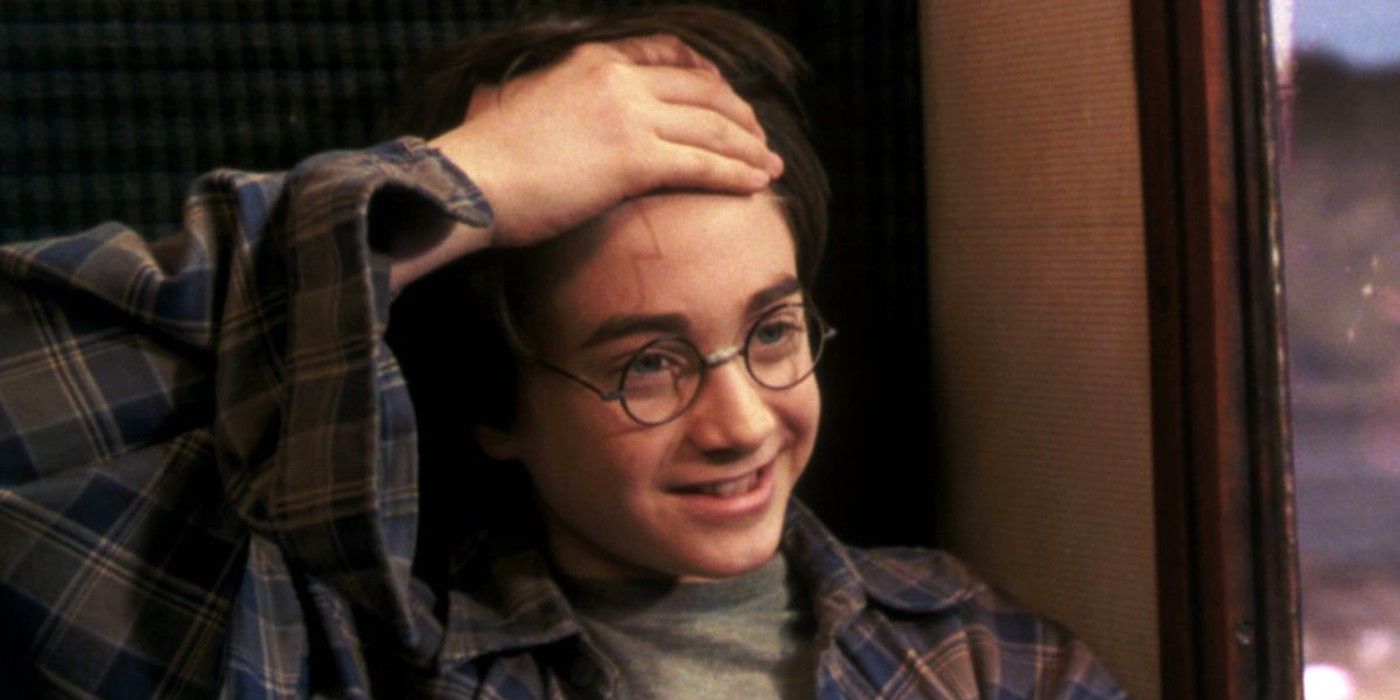Why Chris Columbus Didn't Direct Harry Potter And The Prisoner Of Azkaban

Table of Contents
Creative Differences and Vision for the Series
Columbus's vision for the Harry Potter films, while successful in establishing the series' foundation, may have diverged from the increasingly darker and more mature tone of the source material, particularly in Prisoner of Azkaban. Warner Bros., the studio behind the films, likely had a specific direction in mind for the franchise's evolution, potentially leading to creative clashes with Columbus.
- Stylistic Choices: Columbus's approach in the first two films leaned towards a lighter, more whimsical style. Prisoner of Azkaban, however, required a more gothic and atmospheric visual language to reflect the book's darker themes. A shift away from the established style might have presented challenges.
- Tone and Atmosphere: The shift in tone from the relatively lighthearted adventures of the first two books to the darker, more mysterious atmosphere of Prisoner of Azkaban demanded a different directorial approach. Columbus's established style may not have been the best fit for this dramatic change.
- Adapting Mature Themes: Prisoner of Azkaban introduces more complex themes, including betrayal, loss, and the exploration of darker magic. Adapting these mature elements required a director comfortable with a more nuanced and potentially unsettling portrayal of the wizarding world.
Scheduling Conflicts and Other Projects
Beyond creative differences, scheduling conflicts and other commitments could have played a significant role in Columbus's decision not to direct Prisoner of Azkaban. The demanding production schedule of a Harry Potter film requires considerable time and dedication.
- Concurrent Projects: Around the time of Prisoner of Azkaban's production, Columbus may have had other film projects lined up. Balancing the commitment to a major franchise like Harry Potter with other professional obligations could have proven challenging.
- Time Commitment: Directing a Harry Potter film is a monumental undertaking, demanding long hours, extensive pre-production, and post-production work. This significant time commitment likely factored into his decision.
- Production Pressures: The pressures associated with directing a highly anticipated film in a major franchise are immense. The need to meet deadlines, manage a large cast and crew, and maintain a high level of quality adds considerable stress to an already demanding schedule.
Alfonso Cuarón's Unique Style and the Perfect Fit
Alfonso Cuarón, the director who ultimately took the helm of Prisoner of Azkaban, brought a distinct visual style perfectly suited to the film's darker tone. His artistic choices significantly impacted the franchise's evolution.
- Darker, More Mature Tone: Cuarón's directorial style, known for its visual richness and atmospheric depth, effectively reflected the darker, more mature themes of Prisoner of Azkaban. His unique perspective allowed the film to successfully embrace the story’s complexities.
- Directorial Style: Cuarón’s use of long takes, dynamic camera movements, and a visually stunning aesthetic created an immersive and captivating cinematic experience. These choices perfectly complemented the book's more atmospheric and suspenseful narrative.
- Impact on the Franchise: Cuarón's Prisoner of Azkaban is widely considered one of the best films in the Harry Potter series, setting a new standard for the franchise and paving the way for a more mature and visually ambitious approach in subsequent films.
The Legacy of Chris Columbus and the Harry Potter Franchise
Despite not directing Prisoner of Azkaban, Chris Columbus's contribution to establishing the Harry Potter film series is undeniable. His direction of the first two films laid a crucial foundation for the franchise's success.
- Successful First Two Films: Columbus successfully launched the Harry Potter film series, establishing its tone, characters, and visual style in the first two installments. His contributions were vital to the franchise’s early success.
- Setting the Foundation: The success of the first two films under his guidance set the stage for the films that followed, ensuring the franchise's early momentum.
- Impact on the Franchise: Columbus's work on the first two films was fundamental to shaping the initial perception and success of the Harry Potter film franchise.
Conclusion: Understanding the Absence of Chris Columbus in Harry Potter and the Prisoner of Azkaban
In conclusion, Chris Columbus's absence from Harry Potter and the Prisoner of Azkaban resulted from a confluence of factors, primarily creative differences regarding the film's tone and direction, scheduling conflicts and other projects, and the perfect fit found in Alfonso Cuarón's unique vision. This transition, although unexpected, ultimately contributed to the successful evolution of the Harry Potter film series. What are your thoughts on why Chris Columbus didn't direct Harry Potter and the Prisoner of Azkaban? Share your opinions in the comments below!

Featured Posts
-
 Maines Groundbreaking Post Election Audit A Closer Look
May 02, 2025
Maines Groundbreaking Post Election Audit A Closer Look
May 02, 2025 -
 Teleurgestelde Bewoners Oostwold Nieuwe Verdeelstation Een Voldongen Feit
May 02, 2025
Teleurgestelde Bewoners Oostwold Nieuwe Verdeelstation Een Voldongen Feit
May 02, 2025 -
 Jan 6 Hearing Witness Cassidy Hutchinson To Publish Memoir This Fall
May 02, 2025
Jan 6 Hearing Witness Cassidy Hutchinson To Publish Memoir This Fall
May 02, 2025 -
 Us Sales Showdown Ps 5 Vs Xbox Series X S Which Console Reigns Supreme
May 02, 2025
Us Sales Showdown Ps 5 Vs Xbox Series X S Which Console Reigns Supreme
May 02, 2025 -
 Four Inches Of Snow Or More Expected Tuesday Bitter Cold Blast
May 02, 2025
Four Inches Of Snow Or More Expected Tuesday Bitter Cold Blast
May 02, 2025
